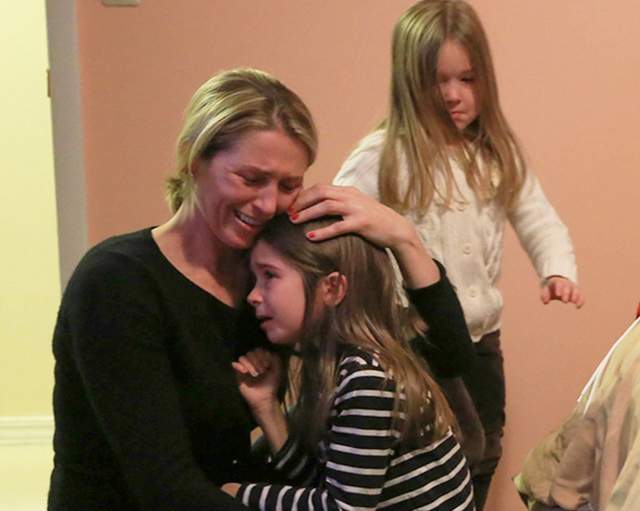Detroit Free Press
December 4, 2013

For Cile Precetaj of Troy, an Albanian immigrant with three American children, the last 24 hours have been a nightmare.
Come 10:30 a.m. today, the 40-year-old married mother of three has to report for deportation at Detroit Metro Airport — an event she has had little time to prepare for.
She got 24 hours’ notice.
According to her family and attorney, U.S. authorities sprang the deportation notice on Precetaj on Monday morning. It was brief: Report at 10:30 a.m. at the McNamara terminal, departures level, near the elevators.
“In my experience, I’ve never seen it. … I’ve never seen them deport a female who has children,” said New York immigration attorney Andrew Johnson, who is in a race against time to save his client from deportation. “No one can believe that this is actually occurring.”
The woman’s husband is especially baffled.
“We’re hoping for a miracle,” Pjetero (Pete) Gojcevic, told the Free Press on Monday night.
The U.S. Immigrations Customs and Enforcement said it would comment on the case today.
According to court documents and interviews with Precetaj’s husband and attorney, this is her story:
Precetaj, who was born in Albania in 1972, fled to the U.S. in 2000 to escape an abusive fiancé and a criminal atmosphere, testifying that she was unable to go outside for fear of being kidnapped and sold into prostitution. She entered the U.S. illegally via Canada at the Port Huron border with friends. Upon arrival, she turned herself into authorities and sought asylum.
While living in the U.S. illegally, she got married and raised a family. She worked at various restaurants in the kitchen. And teachers praised her as a good mother who had a positive influence on her children’s performance in school.
But despite her appeal for asylum, an immigration judge denied her request, concluding her testimony about fearing prostitution and crime lacked credibility. And even if it was credible, the judge held, she wasn’t entitled to asylum because “young, attractive women are not a social group for asylum.” In 2008, the U.S. 6th Circuit Court of Appeals upheld that decision.
 Daily Stormer The Most Censored Publication in History
Daily Stormer The Most Censored Publication in History


